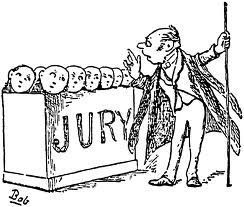Removing
menthol cigarettes from sale in the U.S. would benefit public health, members of an advisory panel said in a report that urged more studies.
A yearlong analysis shows the menthol flavor harms the public by luring more people to start smoking cigarettes and making it harder to quit, outside Food and Drug Administration advisers said in a draft report that must be submitted to the agency by March 23. Lorillard Inc., maker of the top-selling menthol brand Newport, rose the most in more than two years after analysts predicted that regulators will ultimately reject a ban.
The FDA advisers' non-binding report is required by a 2009 law that restricts cigarettes marketing and bars cigarette makers from adding flavors such as clove or strawberry. An FDA conclusion that menthol cigarettes are more dangerous than unflavored versions may lead to a ban.
While panelists favored a ban, the report
“doesn't paint the FDA into a corner,” Patrick Hughes, an analyst with Height Analytics in Washington, said today in an interview.
“It has certainly laid out an array of issues for FDA to address before they're in any position to advance a rulemaking,” he said.
Analysts at UBS AG and Goldman Sachs Group Inc. urged investors to buy Lorillard shares, saying the committee's report probably won't persuade the FDA to pull menthol cigarettes off the market.
The recommendations are based on scant scientific evidence and the agency
“may not want to face any serious legal challenges,” Judy Hong, an analyst at Goldman Sachs in New York, said today in a research note.
Menthol cigarettes products account for about 30 percent of the $85 billion in annual U.S. cigarette sales. Newport generates $5 billion a year in revenue for Greensboro, North Carolina-based Lorillard, followed by
Marlboro Menthol cigarettes from Altria Group Inc.'s Philip Morris USA unit and Reynolds American Inc.'s Camel Menthol cigarettes, Kool cigarettes and Salem cigarettes, according to data compiled by Bloomberg. Lorillard, Reynolds and Altria are the three biggest U.S. cigarettes companies.
Lorillard rose $8.33, or 11 percent, to $87.11 at 4:15 p.m. in New York Stock Exchange composite trading, its biggest single-day gain since Oct. 28, 2008. Reynolds, based in Winston- Salem, North Carolina, gained 62 cents, or 1.9 percent, to $33.47, while Richmond, Virginia-based Altria advanced 36 cents, or 1.5 percent, to $24.80.
Panelists held their final meeting on the menthol cigarettes report today and said substantive changes are unlikely. Five public- health groups supported the findings, saying the recommendations are based on an
“exhaustive review” of the scientific evidence.
“The committee's conclusions leave no doubt that menthol cigarettes have had a profound adverse impact on public health in the United States, resulting in more smoking cigarettes and more death and disease from cigarettes use,” the American Cancer Society, the Cancer Action Network, The American Heart Association, the American Lung Association, and the Campaign for C4igarettes-Free Kids said today in a joint statement.While a draft chapter released Feb. 28 found that menthol cigarettes smokers don't face more risks of cigarettes-related disease than people who use regular cigarettes, the panel said disease risks aren't the only indicator of menthol cigarettes' effect on public health.
“The availability of menthol cigarettes has an adverse impact on public health by increasing the number of cigarettes smokers with resulting premature death and avoidable mortalities,” advisory panel member Mark Clanton, chief medical officer at the American Cancer Society, said at today's meeting. Clanton was lead author of the chapter assessing the public-health effects of menthol cigarettes.The panel urged more FDA studies on whether certain concentrations of the additive make cigarettes more addictive, and whether banning sales would increase demand on the illegal market.
“Depending on what directions or actions the FDA may choose to take, then they would need to consider the potential for contraband under those scenarios,” Jonathan Samet, the committee's chairman and a professor at the University of California's Keck School of Medicine in Los Angeles, told reporters after the meeting.
“There may be strategies other than a full removal” of menthol cigarettes from the market.Panelists don't plan to change the report other than correcting “typos and other editorial problems” before submitting it to the agency, Samet said.
Lorillard disagreed with the panel's
“unsubstantiated conclusion” that removing
menthol cigarettes would benefit public health.The report
“is just the first step in what we believe will be a very long process that ultimately does not result in the removal of menthol cigarettes from the marketplace, especially when contraband and other unintended consequences are seriously considered,” Chief Executive Officer Murray Kessler said today in a statement.
“Any final decision by the agency should be based on sound science,” Jeffery Gentry, executive vice president and chief scientific officer of Reynolds, said in a statement.
“We look forward to continuing to provide information and our perspectives on this issue to the agency as it undertakes this process.”The FDA will issue an initial report on its review of the advisory panel's findings in about 90 days, said Lawrence Deyton, director of the agency's Center for Cigarettes Products. The agency doesn't have a timeline for deciding whether to restrict menthol cigarettes sales, he said.The advisory committee's report
“does not set FDA policy, does not set FDA actions, and FDA's receipt of the final report will not have a direct and immediate effect on availability of menthol cigarettes products,” Deyton said at today's meeting.
Tax implications are among the reasons the FDA probably will decide against a ban on menthol cigarettes, UBS analyst Nik Modi said today in a note. Removal of menthol cigarettes from the market would reduce U.S. cigarette tax revenue by $5 billion a year while costing states $8 billion in annual tax revenue and $3 billion in yearly cigarettes settlement payments, Modi said.The FDA's Cigarettes Products Scientific Advisory Committee reviewed decades of published studies and FDA research, along with marketing data submitted by Altria, Reynolds American and Lorillard.
Lorillard and Reynolds have sued the FDA to block the agency from
“receiving or relying on” the advisory panel's recommendations. Three of the eight panel members have conflicts of interest, according to the complaint filed Feb. 25 in federal court in Washington.
The three panelists have served as paid witnesses in lawsuits against the
cigarettes industry and take money from drug companies that make cigarettes smoking-cessation aids, Lorillard and Reynolds said in the complaint. Altria isn't part of the suit.
 From Shiva Naipaul’s travel essay about the Seychelles, “Fall from Innocence”:
From Shiva Naipaul’s travel essay about the Seychelles, “Fall from Innocence”:



















